Editor’s note: The following is excerpted from Beacon Lights of History, by John Lord (published 1902)
Marcus Aurelius is immortal, not so much for what he did as for what he was. His services to the State were considerable, but not transcendent. He was a great man, but not pre-eminently a great emperor. He was a meditative sage rather than a man of action; although he successfully fought the Germanic barbarians, and repelled their fearful incursions. He did not materially extend the limits of the Empire, but he preserved and protected its provinces. He reigned wisely and ably, but made mistakes. His greatness was in his character; his influence for good was in his noble example. When we consider his circumstances and temptations, as the supreme master of a vast Empire, and in a wicked and sensual age, he is a greater moral phenomenon than Socrates or Epictetus. He was one of the best men of Pagan antiquity. History furnishes no example of an absolute monarch so pure and spotless and lofty as he was, unless it be Alfred the Great or St. Louis. But the sphere of the Roman emperor was far greater than that of the Mediaeval kings. Marcus Aurelius ruled over one hundred and twenty millions of people, without check or hindrance or Constitutional restraint. He could do what he pleased with their persons and their property. Most sovereigns, exalted to such lofty dignity and power, have been either cruel, or vindictive, or self-indulgent, or selfish, or proud, or hard, or ambitious,–men who have been stained by crimes, whatever may have been their services to civilization. Most of them have yielded to their great temptations. But Marcus Aurelius, on the throne of the civilized world, was modest, virtuous, affable, accessible, considerate, gentle, studious, contemplative, stained by novices,–a model of human virtue. Hence he is one of the favorite characters of history. No Roman emperor was so revered and loved as he, and of no one have so many monuments been preserved. Everybody had his picture or statue in his house. He was more than venerated in his day, and his fame as a wise and good man has increased with the flight of ages.
This illustrious emperor did not belong to the family of the great Caesar. That family became extinct with Nero, the sixth emperor. Like Trajan and Hadrian, Marcus Aurelius derived his remote origin from Spain, although he was born in Rome. His great-grandfather was a Spaniard, and yet attained the praetorian rank. His grandfather reached the consulate. His father died while praetor, and when he himself was a child. He was adopted by his grandfather Annius Verus. But his marvellous moral beauty, even as a child, attracted the attention of the Emperor Hadrian, who bestowed upon him the honor of the aequestrian rank, at the age of six. At fifteen he was adopted by Antoninus Pius, then, as we might say, “Crown Prince.” Had he been older, he would have been adopted by Hadrian himself. He thus, a mere youth, became the heir of the Roman world. His education was most excellent. From Fronto, the greatest rhetorician of the day, he learned rhetoric; from Herodes Atticus he acquired a knowledge of the world; from Diognotus he learned to despise superstition; from Apollonius, undeviating steadiness of purpose; from Sextus of Chaeronea, toleration of human infirmities; from Maximus, sweetness and dignity; from Alexander, allegiance to duty; from Rusticus, contempt of sophistry and display. This stoical philosopher created in him a new intellectual life, and opened to him a new world of thought. But the person to whom he was most indebted was his adopted father and father-in-law, the Emperor Antoninus Pius. For him he seems to have had the greatest reverence. “In him,” said he, “I noticed mildness of manner with firmness of resolution, contempt of vain-glory, industry in business, and accessibility of person. From him I learned to acquiesce in every fortune, to exercise foresight in public affairs, to rise superior to vulgar praises, to serve mankind without ambition, to be sober and steadfast, to be content with little, to be practical and active, to be no dreamy bookworm, to be temperate, modest in dress, and not to be led away by novelties.” What a picture of an emperor! What a contrast to such a man as Louis XIV!
We might draw a parallel between Marcus Aurelius and David, when he was young and innocent. But the person in history whom he most resembled was St. Anselm. He was a St. Anselm on the throne. Philosophical meditations seem to have been his delight and recreation; and yet he could issue from his retirement and engage in active pursuits. He was an able general as well as a meditative sage,–heroic like David, capable of enduring great fatigue, and willing to expose himself to great dangers.
While his fame rests on his “Meditations,” as that of David rests upon his Psalms, he yet rendered great military services to the Empire. He put down a dangerous revolt under Avidius Cassius in Asia, and did not punish the rebellious provinces. Not one person suffered death in consequence of this rebellion. Even the papers of Cassius, who aimed to be emperor, were burned, that a revelation of enemies might not be made,–a signal instance of magnanimity. Cassius, it seems, was assassinated by his own officers, which assassination Marcus Aurelius regretted, because it deprived him of granting a free pardon to a very able but dangerous man.
But the most signal service he rendered the Empire was a successful resistance to the barbarians of Germany, who had formed a general union for the invasion of the Roman world. They threatened the security of the Empire, as the Teutons did in the time of Marius, and the Gauls and Germans in the time of Julius Caesar. It took him twenty years to subdue these fierce warriors. He made successive campaigns against them, as Charlemagne did against the Saxons. It cost him the best years of his life to conquer them, which he did under difficulties as great as Julius surmounted in Gaul. He was the savior and deliverer of his country, as much as Marius or Scipio or Julius. The public dangers were from the West and not the East. Yet he succeeded in erecting a barrier against barbaric inundations, so that for nearly two hundred years the Romans were not seriously molested. There still stands in “the Eternal City” the column which commemorates his victories,–not so beautiful as that of Trajan, which furnished the model for Napoleon’s column in the Place Vendome, but still greatly admired. Were he not better known for his writings, he would be famous as one of the great military emperors, like Vespasian, Diocletian, and Constantine. Perhaps he did not add to the art of war; that was perfected by Julius Caesar. It was with the mechanism of former generals that he withstood most dangerous enemies, for in his day the legions were still well disciplined and irresistible.
The only stains on the reign of this good and great emperor–for there were none on his character–were in allowing the elevation of his son Commodus as his successor, and his persecution of the Christians.
In regard to the first, it was a blunder rather than a fault. Peter the Great caused his heir to be tried and sentenced to death, because he was a sot, a liar, and a fool. He dared not intrust the interests of his Empire to so unworthy a son; the welfare of Russia was more to him than the interest of his family. In that respect this stern and iron man was a greater prince than Marcus Aurelius; for the law of succession was not established at Rome any more than in Russia. There was no danger of civil war should the natural succession be set aside, as might happen in the feudal monarchies of Europe. The Emperor of Rome could adopt or elect his successor. It would have been wise for Aurelius to have selected one of the ablest of his generals, or one of the wisest of his senators, as Hadrian did, for so great and responsible a position, rather than a wicked, cruel, dissolute son. But Commodus was the son of Faustina also,–an intriguing and wicked woman, whose influence over her husband was unfortunately great; and, what is common in this world, the son was more like the mother than the father. (I think the wife of Eli the high-priest must have been a bad woman.) All his teachings and virtues were lost on such a reprobate. She, as an unscrupulous and ambitious woman, had no idea of seeing her son supplanted in the imperial dignity; and, like Catherine de’Medici and Agrippina, probably she connived at and even encouraged the vices of her children, in order more easily to bear rule. At any rate, the succession of Commodus to the throne was the greatest calamity that could have happened. For five reigns the Empire had enjoyed peace and prosperity; for five reigns the tide of corruption had been stayed: but the flood of corruption swept all barriers away with the accession of Commodus, and from that day the decline of the Empire was rapid and fatal. Still, probably nothing could have long arrested ruin. The Empire was doomed.
The other fact which obscured the glory of Marcus Aurelius as a sovereign was his persecution of the Christians,–for which it is hard to account, when the beneficent character of the emperor is considered. His reign was signalized for an imperial persecution, in which Justin at Rome, Polycarp at Smyrna, and Ponthinus at Lyons, suffered martyrdom. It was not the first persecution. Under Nero the Christians had been cruelly tortured, nor did the virtuous Trajan change the policy of the government. Hadrian and Antoninus Pius permitted the laws to be enforced against the Christians, and Marcus Aurelius saw no reason to alter them. But to the mind of the Stoic on the throne, says Arnold, the Christians were “philosophically contemptible, politically subversive, and morally abominable.” They were regarded as statesmen looked upon the Jesuits in the reign of Louis XV., as we look upon the Mormons,–as dangerous to free institutions. Moreover, the Christians were everywhere misunderstood and misrepresented. It was impossible for Marcus Aurelius to see the Christians except through a mist of prejudices. “Christianity grew up in the Catacombs, not on the Palatine.” In allowing the laws to take their course against a body of men who were regarded with distrust and aversion as enemies of the State, the Emperor was simply unfortunate. So wise and good a man, perhaps, ought to have known the Christians better; but, not knowing them, he cannot be stigmatized as a cruel man. How different the fortunes of the Church had Aurelius been the first Christian emperor instead of Constantine! Or, had his wife Faustina known the Christians as well as Marcia the mistress of Commodus, perhaps the persecution might not have happened,–and perhaps it might. Earnest and sincere men have often proved intolerant when their peculiar doctrines have been assailed,–like Athanasius and St. Bernard. A Stoical philosopher was trained, like a doctor of the Jewish Sandhedrim, in a certain intellectual pride.
The fame of Marcus Aurelius rests, as it has been said, on his philosophical reflections, as his “Meditations” attest. This remarkable book has come down to us, while most of the annals of the age have perished; so that even Niebuhr confesses that he knows less of the reign of Marcus Aurelius than of the early kings of Rome. Perhaps that is one reason why Gibbon begins his history with later emperors. But the “Meditations” of the good emperor survive, like the writings of Epictetus, St. Augustine, and Thomas a Kempis: one of the few immortal books,–immortal, in this case, not for artistic excellence, like the writings of Thucydides and Tacitus, but for the loftiness of thoughts alone; so precious that the saints of the Middle Ages secretly preserved them as in accord with their own experiences. It is from these “Meditations” that we derive our best knowledge of Marcus Aurelius. They reveal the man,–and a man of sorrows, as the truly great are apt to be, when brought in contact with a world of wickedness, as were Alfred and Dante.
In these “Meditations” there is a striking resemblance to the discourses of Epictetus, which alike reveal the lofty and yet sorrowful soul, and are among the most valuable fragments which have come down from Pagan antiquity; and this is remarkable, since Epictetus was a Phrygian slave, of the lowest parentage. He belonged to the secretary and companion of Nero, whose name was Epaphroditus, and who treated this poor Phrygian with great cruelty. And yet, what is very singular, the master caused the slave to be indoctrinated in the Stoical philosophy, on account of a rare intelligence which commanded respect. He was finally manumitted, but lived all his life in the deepest poverty, to which he attached no more importance than Socrates did at Athens. In his miserable cottage he had no other furniture than a straw pallet and an iron lamp, which last somebody stole. His sole remark on the loss of the only property he possessed was, that when the thief came again he would be disappointed to find only an earthen lamp instead of an iron one. This earthen lamp was subsequently purchased by a hero-worshipper for three thousand drachmas ($150). Epictetus, much as he despised riches and display and luxury and hypocrisy and pedantry and all phariseeism, living in the depths of poverty, was yet admired by eminent men, among whom was the Emperor Hadrian himself; and he found a disciple in Arrian, who was to him what Xenophon was to Socrates, committing his precious thoughts to writing; and these thoughts were to antiquity what the “Imitation of Christ” was to the Middle Ages,–accepted by Christians as well as by pagans, and even to-day regarded as one of the most beautiful treatises on morals ever composed by man. The great peculiarity of the “Manual” and the “Discourses” is the elevation of the soul over external evils, the duty of resignation to whatever God sends, and the obligation to do right because it is right. Epictetus did not go into the dreary dialectics of the schools, but, like Socrates, confined himself to practical life,–to the practice of virtue as the greatest good,–and valued the joys of true intellectual independence. To him his mind was his fortune, and he desired no better. We do not find in the stoicism of the Phrygian slave the devout and lofty spiritualism of Plato,–thirsting for God and immortality; it may be doubted whether he believed in immortality at all: but he did recognize what is most noble in human life,–the subservience of the passions to reason, the power of endurance, patience, charity, and disinterested action. He did recognize the necessity of divine aid in the struggles of life, the glory of friendship, the tenderness of compassion, the power of sympathy. His philosophy was human, and it was cheerful; since he did not believe in misfortune, and exalted gentleness and philanthropy. Above everything, he sought inward approval, not the praises of the world,–that happiness which lies within one’s self, in the absence of all ignoble fears, in contentment, in that peace of the mind which can face poverty, disease, exile, and death.
Such were the lofty views which, embodied in the discourses of Epictetus, fell into the hands of Marcus Aurelius in the progress of his education, and exercised such a great influence on his whole subsequent life. The slave became the teacher of the emperor,–which it is impossible to conceive of unless their souls were in harmony. As a Stoic, the emperor would not be less on his throne than the slave in his cottage. The trappings and pomps of imperial state became indifferent to him, since they were external, and were of small moment compared with that high spiritual life which he desired to lead. If poverty and pain were nothing to Epictetus, so grandeur and power and luxury should be nothing to him,–both alike being merely outward things, like the clothes which cover a man. And the fewer the impediments in the march after happiness and truth the better. Does a really great and preoccupied man care what he wears? “A shocking bad hat” was perhaps as indifferent to Gladstone as a dirty old cloak was to Socrates. I suppose if a man is known to be brainless, it is necessary for him to wear a disguise,–even as instinct prompts a frivolous and empty woman to put on jewels. But who expects a person recognized as a philosopher to use a mental crutch or wear a moral mask? Who expects an old man, compelling attention by his wisdom, to dress like a dandy? It is out of place; it is not even artistic,–it is ridiculous. That only is an evil which shackles the soul. Aurelius aspired to its complete emancipation. Not for the joys of a future heaven did he long, but for the realities and certitudes of earth,–the placidity and harmony and peace of his soul, so long as it was doomed to the trials and temptations of the world, and a world, too, which he did not despise, but which he sought to benefit.
So, what was contentment in the slave became philanthropy in the emperor. He would be a benefactor, not by building baths and theatres, but by promoting peace, prosperity, and virtue. He would endure cheerfully the fatigue of winter campaigns upon the frozen Danube, if the Empire could be saved from violence. To extend its boundaries, like Julius, he cared nothing; but to preserve what he had was a supreme duty. His watchword was duty,–to himself, his country, and God. He lived only for the happiness of his subjects. Benevolence became the law of his life. Self-abnegation destroyed self-indulgence. For what was he placed by Providence in the highest position in the world, except to benefit the world? The happiness of one hundred and twenty millions was greater than the joys of any individual existence. And what were any pleasures which ended in vanity to the sublime placidity of an emancipated soul? Stoicism, if it did not soar to God and immortality, yet aspired to the freedom and triumph of what is most precious in man. And it equally despised, with haughty scorn, those things which corrupted and degraded this higher nature,–the glorious dignity of unfettered intellect. The accidents of earth were nothing in his eyes,–neither the purple of kings nor the rags of poverty. It was the soul, in its transcendent dignity, which alone was to be preserved and purified.
This was the exalted realism which appears in the “Meditations” of Marcus Aurelius, and which he had learned from the inspirations of a slave. Yet such was the inborn, almost supernatural, loftiness of Aurelius, that, had he been the slave and Epictetus the emperor, the same moral wisdom would have shone in the teachings and life of each; for they both were God’s witnesses of truth in an age of wickedness and shame. It was He who chose them both, and sent them out as teachers of righteousness,–the one from the humblest cottage, the other from the most magnificent palace of the capital of the world. In station they were immeasurably apart; in aim and similarity of ideas they were kindred spirits,–one of the phenomena of the moral history of our race; for the slave, in his physical degradation, had all the freedom and grandeur of an aspiring soul, and the emperor, on his lofty throne, had all the humility and simplicity of a peasant in the lowliest state of poverty and suffering. Surely circumstances had nothing to do with this marvellous exhibition. It was either the mind and soul triumphant over and superior to all outward circumstances, or it was God imparting an extraordinary moral power.
I believe it was the inscrutable design of the Supreme Governor of the universe to show, perhaps, what lessons of moral wisdom could be taught by men under the most diverse influences and under the greatest contrasts of rank and power, and also to what heights the souls of both slave and king could rise, with His aid, in the most corrupt period of human history. Noah, Abraham, and Moses did not stand more isolated amidst universal wickedness than did the Phrygian slave and the imperial master of the world. And as the piety of Noah could not save the antediluvian empires, as the faith of Abraham could not convert idolatrous nations, as the wisdom of Moses could not prevent the sensualism of emancipated slaves, so the lofty philosophy of Aurelius could not save the Empire which he ruled. And yet the piety of Noah, the faith of Abraham, the wisdom of Moses, and the stoicism of Aurelius have proved alike a spiritual power,–the precious salt which was to preserve humanity from the putrefaction of almost universal selfishness and vice, until the new revelation should arouse the human soul to a more serious contemplation of its immortal destiny.

The imperial “Meditations” are without art or arrangement,–a sort of diary, valuable solely for their precious thoughts; not lofty soarings in philosophical and religious contemplation, which tax the brain to comprehend, like the thoughts of Pascal, but plain maxims for the daily intercourse of life, showing great purity of character and extraordinary natural piety, blended with pithy moral wisdom and a strong sense of duty. “Men exist for each other: teach them or bear with them,” said he. “Benevolence is invincible, if it be not an affected smile.” “When thou risest in the morning unwillingly, say, ‘I am rising to the work of a human being; why, then, should I be dissatisfied if I am going to do the things for which I was brought into the world?'” “Since it is possible that thou mayest depart from this life this very moment, regulate every act and thought accordingly (… for death hangs over thee whilst thou livest), while it is in thy power to be good.” “What has become of all great and famous men, and all they desired and loved? They are smoke and ashes, and a tale.” “If thou findest in human life anything better than justice, temperance, fortitude, turn to it with all thy soul; but if thou findest anything else smaller (and of no value) than this, give place to nothing else.” “Men seek retreats for themselves,–houses in the country, seashores, and mountains; but it is always in thy power to retire within thyself, for nowhere does a man retire with more quiet or freedom than into his own soul.” Think of such sayings, written down in his diary on the evenings of the very days of battle with the barbarians on the Danube or in Hungarian marshes! Think of a man, O ye Napoleons, ye conquerors, who can thus muse and meditate in his silent tent, and by the light of his solitary lamp, after a day of carnage and of victory! Think of such a man,–not master of a little barbaric island or a half-established throne in a country no bigger than a small province, but the supreme sovereign of a vast empire, at the time of its greatest splendor and prosperity, with no mortal power to keep his will in check,–nothing but the voice within him; nothing but the sense of duty; nothing but the desire of promoting the happiness of others: and this man a Pagan!
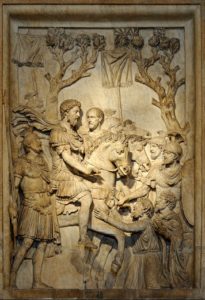
But the state of that Empire, with all its prosperity, needed such a man to arise. If anything or anybody could save it, it was that succession of good emperors of whom Marcus Aurelius was the last, in the latter part of the second century. Let us glance, in closing, at the real condition of the Empire at that time. I take leave of the man,–this “laurelled hero and crowned philosopher,” stretching out his hands to the God he but dimly saw, and yet enunciating moral truths which for wisdom have been surpassed only by the sacred writers of the Bible, to whom the Almighty gave his special inspiration. I turn reluctantly from him to the Empire he governed.
Gibbon says, in his immortal History, “If a man were called to fix the period in the history of the world during which the condition of the human race was most happy and prosperous, he would, without hesitation, name that which elapsed from the death of Domitian to the accession of Commodus.”
This is the view that Gibbon takes of the prosperity of the old Roman world under such princes as the Antonines. Niebuhr, however, a greater critic, though not so great an artist, takes a different view; and both are great authorities. If Gibbon meant simply that this period was the happiest and most prosperous during the imperial reigns, he may not have been far from the truth, according to his standpoint of what human happiness consists in,–that external prosperity which was the blessing of the Old Testament, and which Macaulay exalts as proudly as Gibbon before him. There was this external prosperity, so far as we know, and we know but little aside from monuments and medals. Even Tacitus shrank from writing contemporaneous history, and the period he could have painted is to us dark, mysterious, and unknown. Still, it is generally supposed and conceded that the Empire at this time was outwardly splendid and prosperous. Certainly there was a period of peace, when no wars troubled the State but those which were distant,–on the very confines of the Empire, and that with rude barbarians, no more formidable in the eyes of the luxurious citizens of the capital than a revolt of the Sepoys to the eyes of the citizens of London, or Indian raids among the Rocky Mountains to the eyes of the people of New York. And there was the reign of law and order, a most grateful thing to those who had read of the conspiracy of Catiline and the tumults of Clodius, two hundred and fifty years before. And there was doubtless a magnificent material civilization which promised to be eternal, and of which every Roman was proud. There was a centralization of power in the Eternal City such as had never been seen before and has never been seen since,–a solid Empire so large that the Mediterranean, which it enclosed, was a mere central lake, around the vast circuit of whose shores were temples and palaces and villas of unspeakable beauty, and where a busy population pursued unmolested its various trades. There was commerce on every river which empties itself into this vast basin; there were manufactures in every town, and there were agricultural skill and abundance in every province. The plains of Egypt and Mesopotamia rejoiced in the richest harvests of wheat; the hills of Syria and Gaul, and Spain and Italy, were covered with grape-vines and olives. Italy boasted of fifty kinds of wine, and Gaul produced the same vegetables that are known at the present day. All kinds of fruit were plenty and luscious in every province. There were game-preserves and fish-ponds and groves. There were magnificent roads between all the great cities,–an uninterrupted highway, mostly paved, from York to Jerusalem. The productions of the East were consumed in the West, for ships whitened the sea, bearing their precious gems, and ivory, and spices, and perfumes, and silken fabrics, and carpets, and costly vessels of gold and silver, and variegated marbles; and all the provinces of an empire which extended fifteen hundred miles from north to south and three thousand from east to west were dotted with cities, some of which almost rivalled the imperial capital in size and magnificence. The little island of Rhodes contained twenty-three thousand statues, and Antioch had a street four miles in length, with double colonnades throughout its whole extent. The temple of Ephesus covered as much ground as does the cathedral of Cologne, and the library of Alexandria numbered seven hundred thousand volumes. Rome, the proud metropolis, had a diameter of eleven miles, and was forty-five miles in circuit, with a population, according to Lipsius, larger than modern London. It had seventeen thousand palaces, thirty theatres, nine thousand baths, and eleven amphitheatres,–one of which could seat eighty-seven thousand spectators. The gilding of the roof of the capitol cost fifteen millions of our money. The palace of Nero was more extensive than Versailles. The mausoleum of Hadrian became the most formidable fortress of Mediaeval times. And then, what gold and silver vessels ornamented every palace, what pictures and statues enriched every room, what costly and gilded and carved furniture was the admiration of every guest, what rich dresses decorated the women who supped at gorgeous tables of solid silver, whose very sandals were ornamented with precious stones, and whose necks were hung with priceless pearls and rubies and diamonds! Paulina wore a pearl which, it is said, cost two hundred and fifty thousand dollars of our money. All the masterpieces of antiquity were collected in this centre of luxury and pride,–all those arts which made Greece immortal, and which we can only copy. What vast structures, ornamented with pillars and marble statues, were crowded together near the Forum and Capitoline Hill! The museums of Italy contain to-day twenty thousand specimens of ancient sculpture, which no modern artist could improve. More than a million of dollars were paid for a single picture for the imperial bed-chamber,–for painting was carried to as great perfection as sculpture.
Such were the arts of the Pagan city, such the material civilization in all the cities; and these cities were guarded by soldiers who were trained to the utmost perfection of military discipline, and presided over by governors as elegant, as polished, and as intelligent as the courtiers of Louis XIV. The genius for war was only equalled by genius for government. How well administered were all the provinces! The Romans spread their laws, their language, and their institutions everywhere without serious opposition. They were great civilizers, as the English have been. “Law” became as great an idea as “glory;” and so perfect was the mechanism of government that the happiness of the people was scarcely affected by the character of the emperors. Jurisprudence, the indigenous science of the Romans, is still studied and adopted for its political wisdom.
Such was the civilization of the Roman world in the time of Marcus Aurelius,–that external grandeur, that outward prosperity, to which Gibbon points with such admiration and pride, and to which he ascribed the highest happiness which the world has ever enjoyed. Far different, probably, would have been the verdict of the good and contemplative emperor who then ruled the civilized world, when he saw the luxury, the pride, the sensuality, the selfishness, the irreligion, the worldliness, which marked all classes; producing vices too horrible to be even named, and undermining the moral health, and secretly and surely preparing the way for approaching violence and ruin.
What, then, is the reverse of the picture which Gibbon admired? What established facts have we as an offset to these gilded material glories? What should be the true judgment of mankind as to this lauded period?
The historian speaks of peace, and the prosperity which naturally flowed from it in the uninterrupted pursuit of the ordinary occupations of life. This is indisputable. There was the increase of wealth, the enjoyment of security, the absence of fears, and the reign of law. Life and property were guarded. A man could travel from one part of the Empire to the other without fear of robbers or assassins. All these things are great blessings. Materially we have no higher civilization. But with peace and prosperity were idleness, luxury, gambling, dissipation, extravagance, and looseness of morals of which we have no conception, and which no subsequent age of the world has seen. It was the age of most scandalous monopolies, and disproportionate fortunes, and abandonment to the pleasures of sense. Any Roman governor could make a fortune in a year; and his fortune was spent in banquets and fetes and races and costly wines, and enormous retinues of slaves. The theatres, the chariot races, the gladiatorial shows, the circus, and the sports of the amphitheatre were then at their height. The central spring of society was money, since it purchased everything which Epicureanism valued. No dignitary was respected for his office,–only for the salary or gains which his office brought. All professions which were not lucrative gradually fell into disrepute; and provided they were lucrative, it was of no consequence whether or not they were infamous. Dancers, cooks, and play-actors received the highest consideration, since their earnings were large. Scholars, poets, and philosophers–what few there were–pined in attics. Epictetus lived in a miserable cottage with only a straw pallet and a single lamp. Women had no education, and were disgracefully profligate; even the wife of Marcus Aurelius (the daughter of Antoninus Pius) was one of the most abandoned women of the age, notwithstanding all the influence of their teachings and example. Slavery was so great an institution that half of the population were slaves. There were sixty millions of them in the Empire, and they were generally treated with brutal cruelty. The master of Epictetus, himself a scholar and philosopher, broke wantonly the leg of his illustrious slave to see how well he could bear pain. There were no public charities. The poor and miserable and sick were left to perish unheeded and unrelieved. Even the free citizens were fed at the public expense, not as a charity, but to prevent revolts. About two thousand people owned the whole civilized world, and their fortunes were spent in demoralizing it. What if their palaces were grand, and their villas beautiful, and their dresses magnificent, and their furniture costly, if their lives were spent in ignoble and enervating pleasures, as is generally admitted. There was a low religious life, almost no religion at all, and what there was was degrading by its superstition. Everywhere were seen the rites of magical incantations, the pretended virtue of amulets and charms, soothsayers laughing at their own predictions,–nowhere the worship of the one God who created the heaven and the earth, nor even a genuine worship of the Pagan deities, but a general spirit of cynicism and atheism. What does St. Paul say of the Romans when he was a prisoner in the precincts of the imperial palace, and at a time of no greater demoralization? We talk of the glories of jurisprudence; but what was the practical operation of laws when such a harmless man as Paul could be brought to trial, and perhaps execution! What shall we say of the boasted justice, when judgments were rendered on technical points, and generally in favor of those who had the longest purses; so that it was not only expensive to go to law, but so expensive that it was ruinous? What could be hoped of laws, however good, when they were made the channels of extortion, when the occupation of the Bench itself was the great instrument by which powerful men protected their monopolies? We speak of the glories of art; but art was prostituted to please the lower tastes and inflame the passions. The most costly pictures were hung up in the baths, and were disgracefully indecent. Even literature was directed to the flattery of tyrants and rich men. There was no manly protest from literary men against the increasing vices of society,–not even from the philosophers. Philosophy continually declined, like literature and art. Nothing strikes us more forcibly than the absence of genius in the second century. There was no reward for genius except when it flattered and pandered to what was demoralizing. Who dared to utter manly protests in the Senate? Who discussed the principles of government? Who would venture to utter anything displeasing to the imperial masters of the world? In this age of boundless prosperity, where were the great poets, where the historians, where the writers on political economy, where the moralists? For one hundred years there were scarcely ten eminent men in any department of literature whose writings have come down to us. There was the most marked decay in all branches of knowledge, except in that knowledge which could be utilized for making money. The imperial regime cast a dismal shadow over all the efforts of independent genius, on all lofty aspirations, on all individual freedom. Architects, painters, and sculptors there were in abundance, and they were employed and well paid; but where were poets, scholars, sages?–where were politicians even? The great and honored men were the tools of emperors,–the prefects of their guards, the generals of their armies, the architects of their palaces, the purveyors of their banquets. If the emperor happened to be a good administrator of this complicated despotism, he was sustained, like Tiberius, whatever his character. If he was weak or frivolous, he was removed by assassination. It was a government of absolute physical forces, and it is most marvellous that such a man as Marcus Aurelius could have been its representative. And what could he have done with his philosophical inquiries had he not also been a great general and a practical administrator,–a man of business as well as a man of thought?
But I cannot enumerate the evils which coexisted with all the boasted prosperity of the Empire, and which were preparing the way for ruin,–evils so disgraceful and universal that Christianity made no impression at all on society at large, and did not modify a law or remove a single object of scandal. Do you call that state of society prosperous and happy when half of the population was in base bondage to cruel masters; when women generally were degraded and slighted; when money was the object of universal idolatry; when the only pleasures were in banquets and races and other demoralizing sports; when no value was placed upon the soul, and infinite value on the body; when there was no charity, no compassion, no tenderness; when no poor man could go to law; when no genius was encouraged unless for utilitarian ends; when genius was not even appreciated or understood, still less rewarded; when no man dared to lift up his voice against any crying evil, especially of a political character; when the whole civilized world was fettered, deceived, and mocked, and made to contribute to the power, pleasure, and pride of a single man and the minions upon whom he smiled? Is all this to be overlooked in our estimate of human happiness? Is there nothing to be considered but external glories which appeal to the senses alone? Shall our eyes be diverted from the operation of moral law and the inevitable consequences of its violation? Shall we blind ourselves to the future condition of our families and our country in our estimate of happiness? Shall we ignore, in the dazzling life of a few favored extortioners, monopolists, and successful gamblers all that Christianity points out as the hope and solace and glory of mankind? Not thus would we estimate human felicity. Not thus would Marcus Aurelius, as he cast his sad and prophetic eye down the vistas of succeeding reigns, and saw the future miseries and wars and violence which were the natural result of egotism and vice, have given his austere judgment on the happiness of his Empire. In all his sweetness and serenity, he penetrated the veil which the eye of the worldly Gibbon could not pierce. He declares that “those things which are most valued are empty, rotten, and trifling,”–these are his very words; and that the real life of the people, even in the days of Trajan, had ceased to exist,–that everything truly precious was lost in the senseless grasp after what can give no true happiness or permanent prosperity.

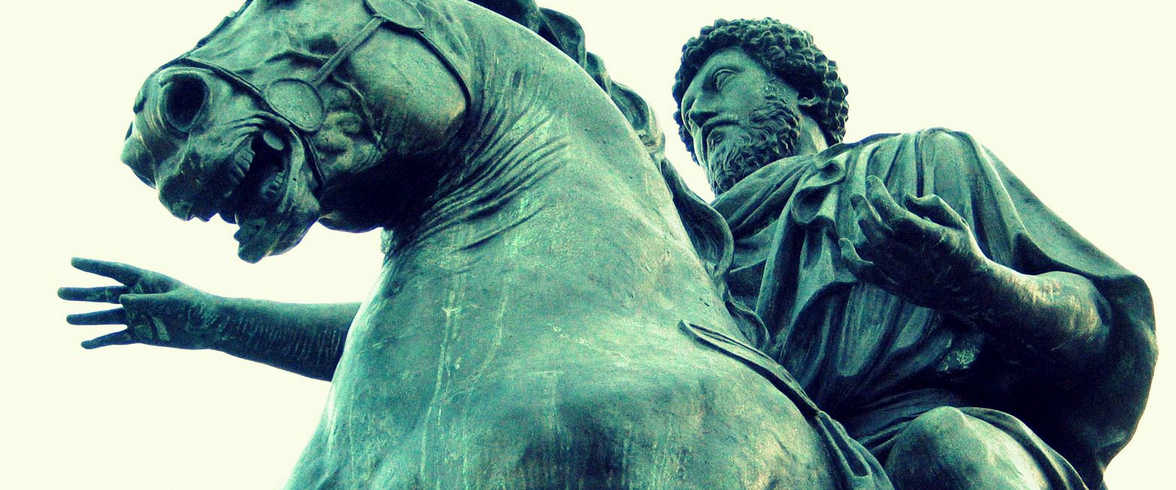
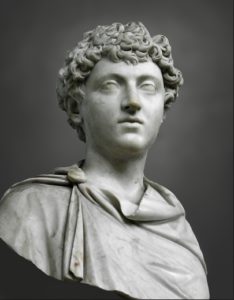
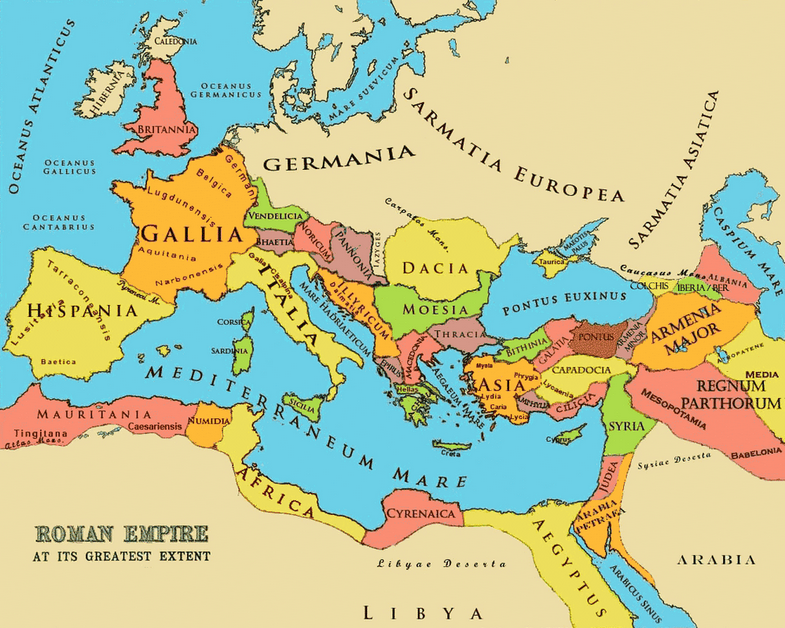
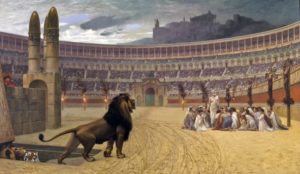
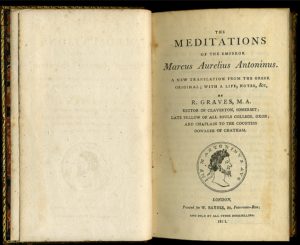

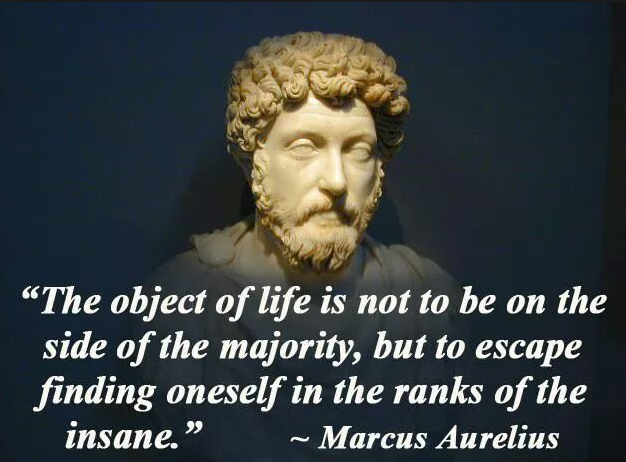
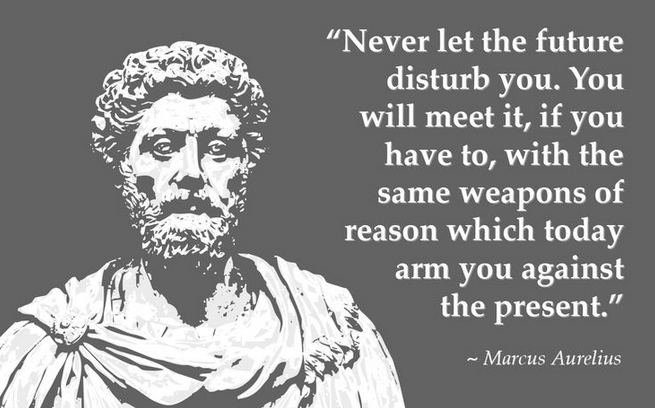
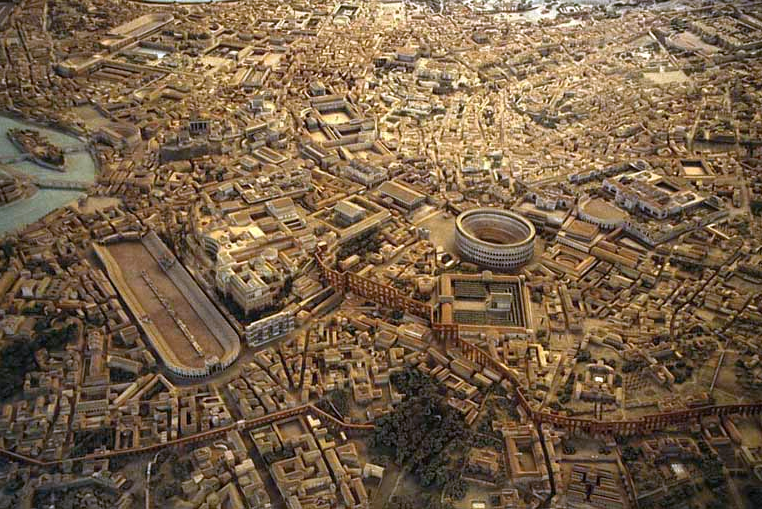
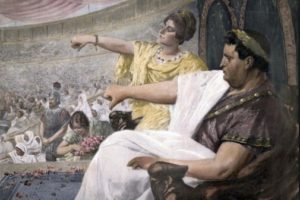
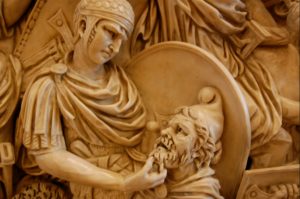
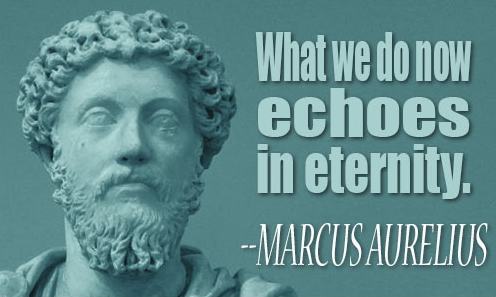



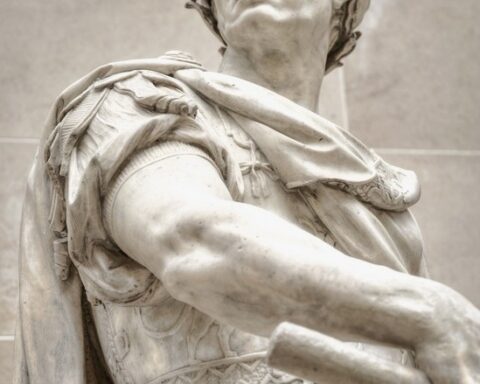

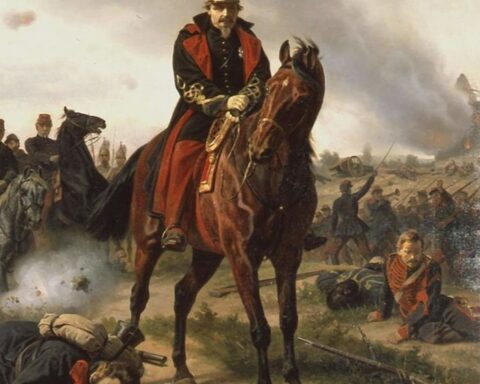
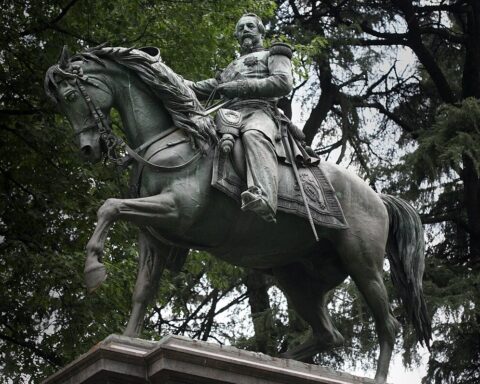
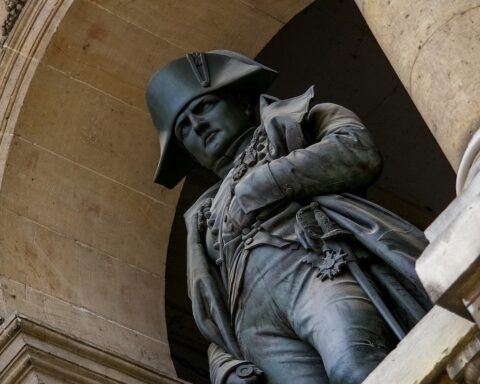
[…] Source link […]